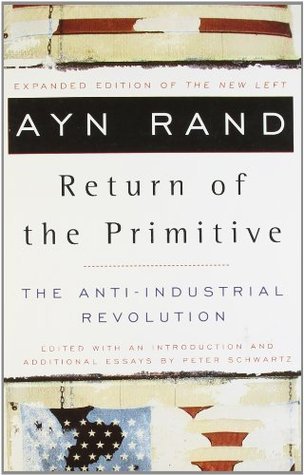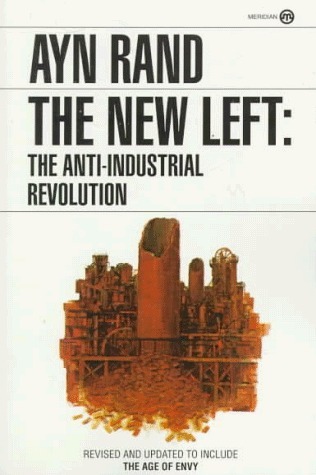
The Return of the Primitive: The Anti-Industrial Revolution
Book Description
Imagine a world where the very fabric of civilization unravels, clawing back to the primal roots of savagery. In "The Return of the Primitive: The Anti-Industrial Revolution," Ayn Rand boldly confronts the rising tide of collectivism and its insidious grip on human progress. With piercing insights, she exposes the dangerous allure of anarchic ideals that threaten intellectual freedom and the achievements of industrial society. Will humanity succumb to the seductive pull of primal instincts and abandon reason for chaos? Dive into this provocative exploration that dares to ask: What do we risk when we turn our backs on civilization?
Quick Book Summary
"The Return of the Primitive: The Anti-Industrial Revolution" by Ayn Rand is a collection of essays analyzing the philosophical underpinnings behind the movements that challenge industrial civilization and individual reason. Rand critically evaluates anti-industrial and collectivist ideologies, especially as they manifested in 1960s and 70s social and political activism, such as the New Left and environmentalism. She argues that these movements seek a regression to primitive instincts and emotions, undermining the values of rational thought, technological progress, and individual rights that have advanced civilization. Through penetrating critiques, Rand warns of the destructive consequences of abandoning reason in favor of emotionalism and collectivist dogma, positing that the future of humanity hinges on upholding the intellectual foundations of a free, industrial society.
Summary of Key Ideas
Table of Contents
The dangers of collectivism and tribalism
A central theme of Rand's work is her warning against the dangers posed by collectivism and tribalism. She asserts that movements which reject individual rights in favor of group allegiance or collective identity inherently erode the freedoms and personal responsibility necessary for a thriving society. Rand traces the roots of these trends to philosophical doctrines that elevate the desires of the group over the mind of the individual, leading not only to political tyranny, but also to a cultural and intellectual regression reminiscent of humanity's more primitive epochs.
The moral defense of industrial civilization
Rand strongly advocates the moral and practical value of industrial civilization, arguing that technological and economic progress has vastly improved human life. She contends that the industrial revolution, fueled by reason and innovation, has liberated humanity from poverty and hardship. In contrast, anti-industrial movements romanticize what Rand sees as a primitive past, ignoring the suffering and stagnation such lifestyles imposed. By challenging the legitimacy of industry, these movements attack the foundations of prosperity and individual flourishing.
The role of reason versus emotion in human progress
The role of reason versus emotion receives particular emphasis in Rand's essays. She highlights how the rejection of rational thought in favor of unexamined feelings or social consensus leads to intellectual chaos and destructive public policies. According to Rand, all genuine progress—scientific, economic, or moral—depends on a steadfast commitment to reason as an absolute. When reason is discarded, society defaults to irrationality and subjectivity, undermining both truth and justice.
Critique of environmentalism and the New Left
Rand devotes significant critique to environmentalism and the New Left. She views environmentalism as an expression of anti-human and anti-industrial sentiment, warning that its focus on nature worship over human wellbeing masks a deeper hostility to reason, progress, and individual freedom. Similarly, the New Left’s advocacy for egalitarianism and activism, in Rand’s assessment, often results in the promotion of collective guilt and resentment rather than genuine social justice. Both movements, she argues, foster a return to tribal thinking at the expense of liberty.
Individualism as the foundation of freedom
Finally, Rand posits individualism as the only secure basis for a free society. Upholding the sanctity of the individual mind and rights, she maintains, is essential for human achievement and happiness. The erosion of individualism heralds not only the stagnation of progress but also the rise of coercion and irrationality. Throughout the essays, Rand challenges readers to defend the values of enlightenment, industry, and personal autonomy against the rising tide of primitivism and collectivist ideology.
Download This Summary
Get a free PDF of this summary instantly — no email required.





